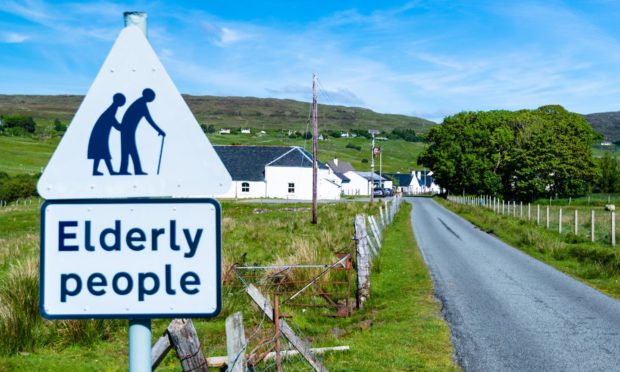Age has been identified as a dividing line when it comes to support for Brexit and for Scottish independence.
On balance, older people favoured Brexit and younger people wanted to remain in he European Union.
The Scottish independence debate sees the age bias reversed, with older people more strongly in favour of Scotland remaining in the UK while younger people lean towards leaving.
This is leading to some strange and distorted arguments that seek to generate a generational divide.
The purpose of the triple lock
Latest in the firing line is the “triple lock” on state pensions, introduced in 2011 by the coalition government and fulfilling a Liberal Democrat manifesto policy.
For years the UK state pension – one of the lowest in Europe – had been reducing in real terms after the Thatcher government ended the link with earnings.
Until then it had been accepted that the value of the state pension should match the overall performance of the economy. There is no doubt that pensioners felt aggrieved at derisory annual increases.
To stop further erosion and start the process of slowly increasing the state pension in real terms, the triple lock stated that pensions should increase each year by the highest of increase in earnings, increase in prices, or 2.5%. That would stop further real cuts in the pension and even see it increase slightly.
No evidence that state pension affected voting decisions
The UK state pension is currently £179.60 per week. The weekly equivalent in Ireland is £215, £260.84 in the Netherlands and £294.41 in Denmark.
It is being argued by some that the triple lock was a factor in encouraging older people to vote for Brexit. Setting aside the complexity of the rational and emotional case for how people voted, there is no evidence that it had anything to do with it.
The triple lock provides some comfort to those most dependent on the state pension. Removing it would inevitably hit poorest and increase income inequality
For those described as “comfortable leavers” who represent a significant proportion of the Brexit vote, occupational benefits and assets in property as well as savings far outweigh any marginal increase in the state pension. To suggest that it even entered their heads is a stretch.
Demonising older people
What is insidious about this argument is it seeks to demonise older people for the most tenuous and spurious of reasons.
Translated to the Scottish independence debate, it becomes even more tenuous. The tasteless zealots in the SNP state that time will see older indy-sceptics dying off and leave the field to the young pro-indy voters.
However, bringing pensions into the debate raises the question of how an independent Scotland could afford to pay pensions and maintain the triple lock – an inevitable casualty of post independence austerity.
That sits less comfortably with younger voters who, according to a recent poll, will be less enthusiastic about independence if it seems likely to make them significantly worse off, which every objective economic analysis shows it will.
Causing division isn’t good for Scotland
It is unpleasant to create a political divide between the generations.
The triple lock provides some comfort to those most dependent on the state pension. Removing it would inevitably see a real terms decline in its value, hitting the poorest and increasing income inequality.
Not only are nationalists dividing the nation pro and anti-independence, but they are sowing division between young and old. That is no way to build a country at ease with itself.
Lord Bruce of Bennachie is former Liberal Democrat MP for Gordon (1983-2015)


